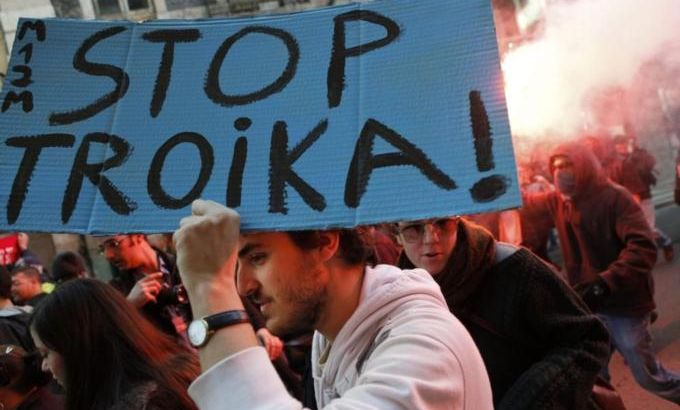Portugal PM vows to stay despite resignations
Pedro Passos Coelho says his government will continue with austerity policies despite resignations of two key ministers.

Portugal’s prime minister says he “won’t resign” despite the resignations of two key members of his Cabinet in a spat over country’s controversial austerity policies.
Pedro Passos Coelho said in a televised address to the nation late on Tuesday that his government will continue its battle to restore the bailed-out country’s financial health.
Keep reading
list of 4 itemsBehind India’s Manipur conflict: A tale of drugs, armed groups and politics
China’s economy beats expectations, growing 5.3 percent in first quarter
Inside the pressures facing Quebec’s billion-dollar maple syrup industry
“I won’t give up on my country,” he said.
But the government’s future is hanging in the balance after the resignation earlier Tuesday of Foreign Minister Paulo Portas, the leader of the junior party in the governing centre-right coalition, in protest against austerity measures.
Passos Coelho said he wouldn’t accept Portas’s resignation and would seek to heal the rift between the coalition partners.
Finance Minister Vitor Gaspar, the architect of the country’s reforms under its EU-IMF bailout, quit a day earlier, complaining he lacked political support for his austerity programmes.
Though Portas did not say whether his party would pull its support from the government, the resignations pitched what for two years had been a stable administration into disarray within the space of 24 hours.
It recalled the political strife that has dogged Greece’s efforts to recover from its own bailout.
Bailout deal
Political opponents have criticised former finance minister Gaspar for blindly implementing the recommendations of the EU, IMF and European Central Bank under the May 2011 bailout deal.
Portas had repeatedly spoken out against Gaspar’s strategy of public sector pay and pension cuts and tax hikes. But Gaspar had the support of Prime Minister Coelho, head of the Social Democratic Party, the coalition’s senior member.
The uncertainty about the government’s future looked set to create a further headache for efforts by the 17 countries that share the euro currency to emerge from a financial crisis.
Austerity is widely blamed for driving the jobless rate especially among the youth in Portugal, where the total unemployment rate is expected to rise 18.2 percent by the end of this year.
Last week the national statistics agency reported that the country’s public debt rose to 10.6 percent of economic output in the first quarter of this year as expenses rose while tax receipts falling.
Portugal is supposed to squeeze the deficit down to 5.5 percent of GDP this year.
The country needed a $102bn bailout two years ago after a decade of weak growth and mounting debt pushed it to the verge of bankruptcy.